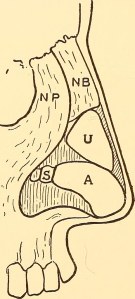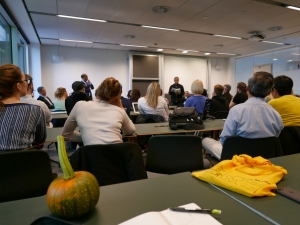This year’s conference for the Association of Chinese and Comparative Literature will take place at Hunan Normal University in Changsha July 17-19. Together with eminent scholars Michelle Yeh of UC Davis and Melinda Pirazzoli of University of Bologna, I’m hosting a panel on Sensory Literary Studies.
 ‘What is that?’ you may well ask… Defining sensory studies, anthropologist David Howes writes that ”sensory studies involves a cultural approach to the study of the senses and a sensory approach to the study of culture. It challenges the monopoly that the discipline of psychology has long exercised over the study of the senses and sense perception by foregrounding the sociality of sensation” (Howes 2013).
‘What is that?’ you may well ask… Defining sensory studies, anthropologist David Howes writes that ”sensory studies involves a cultural approach to the study of the senses and a sensory approach to the study of culture. It challenges the monopoly that the discipline of psychology has long exercised over the study of the senses and sense perception by foregrounding the sociality of sensation” (Howes 2013).
What I should like to do, is apply some of the insights from this growing field of research to the study of literature as an important cultural practice where sensory vocabulary and concepts are codified and challenged.
 Today, the cross-disciplinary field of sensory studies encourages us to acknowledge how “sensory experience is socially made and mediated” and to think that senses are “not simply passive receptors. They are interactive, both with the world and each other” (Howes 2013). By comparing culturally and historically diverse sensory modes and codes, as well as seeking to include internal senses such as sense of pain (nociception), of one’s own muscles and organs (proprioception) and temperature (thermoception), researchers are challenging the conventional pentagonal sensorium.
Today, the cross-disciplinary field of sensory studies encourages us to acknowledge how “sensory experience is socially made and mediated” and to think that senses are “not simply passive receptors. They are interactive, both with the world and each other” (Howes 2013). By comparing culturally and historically diverse sensory modes and codes, as well as seeking to include internal senses such as sense of pain (nociception), of one’s own muscles and organs (proprioception) and temperature (thermoception), researchers are challenging the conventional pentagonal sensorium.
 In this panel, we want to continue the sensory discussion in the literary arena; to think and talk about the ways in which Sinophone fiction and poetry can portray, disrupt and re-conceptualise sensory experience. Our aim is to start an academic conversation about the possibility of ‘Literary Sensory Studies’ and suggest some of the interesting and fruitful paths such a subfield might take. By bringing together sensory analyses of classical poetry, modernist literature and contemporary fiction, we hope to show the concept’s wide-ranging applicability in terms of literary scholarship.
In this panel, we want to continue the sensory discussion in the literary arena; to think and talk about the ways in which Sinophone fiction and poetry can portray, disrupt and re-conceptualise sensory experience. Our aim is to start an academic conversation about the possibility of ‘Literary Sensory Studies’ and suggest some of the interesting and fruitful paths such a subfield might take. By bringing together sensory analyses of classical poetry, modernist literature and contemporary fiction, we hope to show the concept’s wide-ranging applicability in terms of literary scholarship.
 For some time, it has been dawning on me that what I am really interested in is not so much what is written in and about China (as the old name of this blog writingchina would seem to suggest), but rather all sorts of narrative fiction written in the Chinese script(s). (I dare say the intelligent reader will have noticed this long before I did).
For some time, it has been dawning on me that what I am really interested in is not so much what is written in and about China (as the old name of this blog writingchina would seem to suggest), but rather all sorts of narrative fiction written in the Chinese script(s). (I dare say the intelligent reader will have noticed this long before I did). The term xiaoshuo 小说 – which today means any kind of narrative fiction writing, from novels (long fiction 长篇小说) to novellas (medium fiction 中篇小说), short stories (short fiction 短篇小说) and flash fiction (tiny fiction 小小说) – has a long and complicated history in Chinese culture. The essentially diminutive term xiaoshuo (literally small talk), used traditionally to refer (somewhat derogatorily) to “minor philosophical discourse or a type of unofficial, inferior history” (Lu: 39), with strong negative connotations of rumour and gossip rather than of pure fabrication and artful creation as in the latin fictio.
The term xiaoshuo 小说 – which today means any kind of narrative fiction writing, from novels (long fiction 长篇小说) to novellas (medium fiction 中篇小说), short stories (short fiction 短篇小说) and flash fiction (tiny fiction 小小说) – has a long and complicated history in Chinese culture. The essentially diminutive term xiaoshuo (literally small talk), used traditionally to refer (somewhat derogatorily) to “minor philosophical discourse or a type of unofficial, inferior history” (Lu: 39), with strong negative connotations of rumour and gossip rather than of pure fabrication and artful creation as in the latin fictio.

